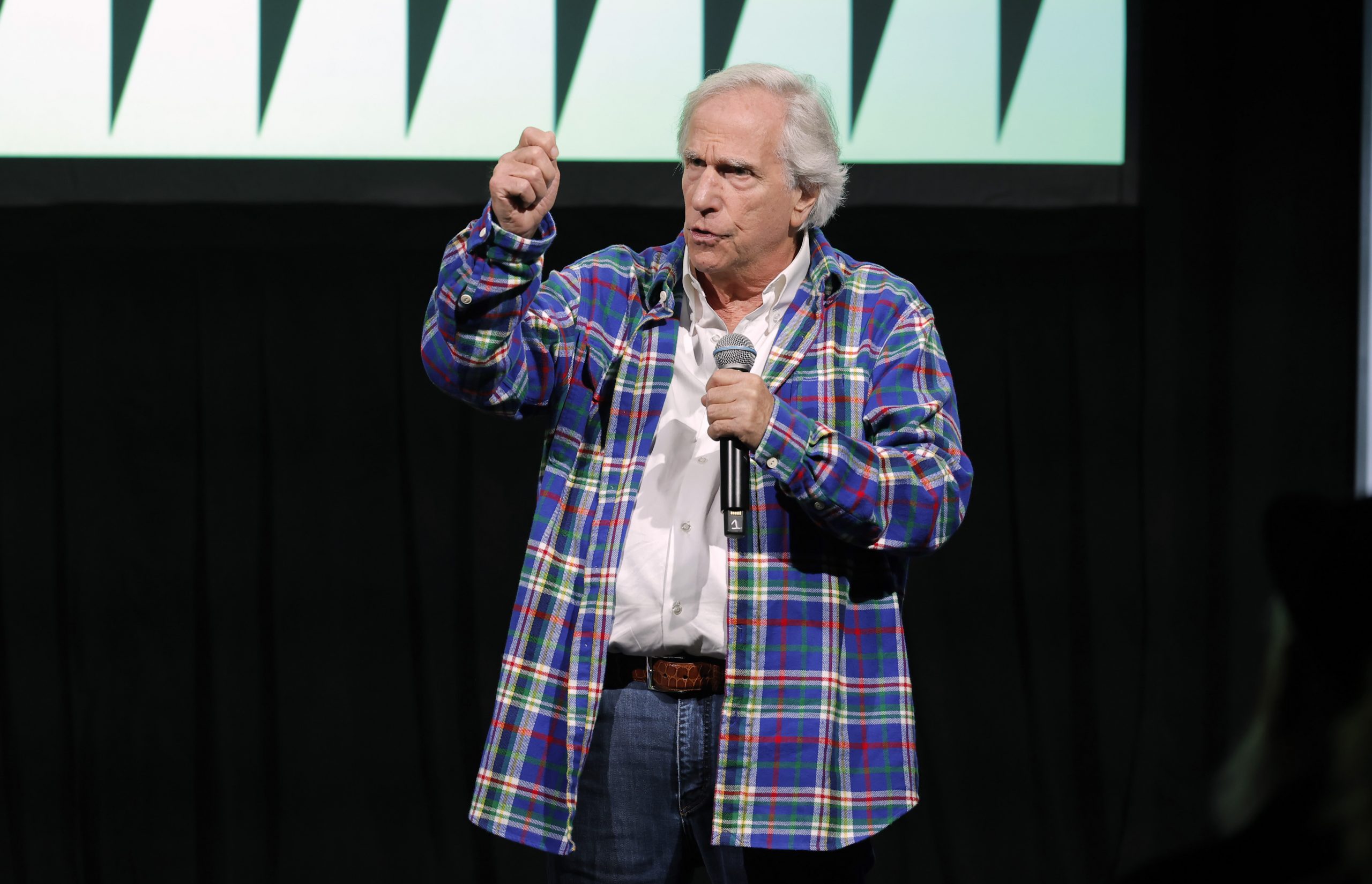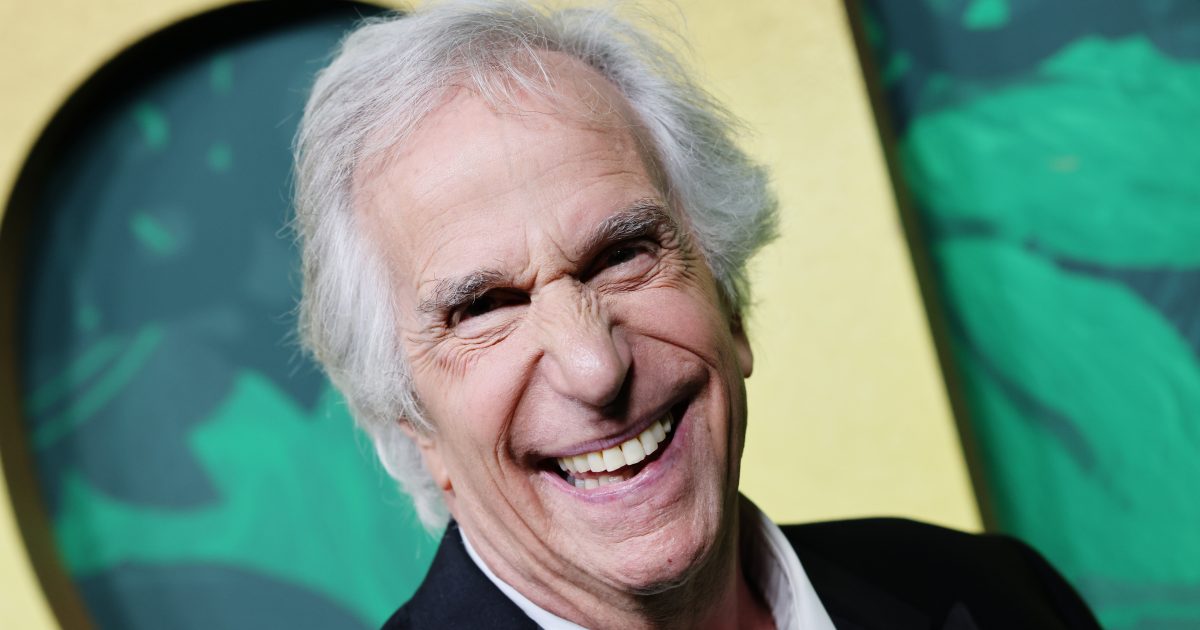Actor Henry Winkler, known for his role as “Fonzie” in the sitcom “Happy Days,” opens up about the regrets he has regarding his support for his wife during her breast cancer journey. In his late 70s, Winkler admits that he struggled with his own mental health, which he sought help for from a therapist.
Research published in The Journal of the Royal Society of Medicine reveals that a cancer diagnosis not only affects the patient but also has significant effects on their family. This includes disruptions in psychological and emotional well-being, leisure activities, relationships, and finances.
Winkler’s wife, Stacey Weitzman, underwent a double mastectomy to treat her cancer. This surgical procedure typically takes around two hours to remove both breasts and eliminate the cancer. In some cases, reconstruction is done using implants or tissue from other parts of the body.
While a cancer diagnosis can sometimes strengthen relationships, it can also pose challenges. Psychologist Dr. Marianna Strongin suggests that it’s essential for cancer patients to surround themselves with caring and supportive individuals who understand their limitations in handling the situation.
Cancer diagnoses undoubtedly have an impact on mental health. Factors such as stress, traumatic events, and changes in physical health can significantly affect the well-being of cancer patients. Genetic testing plays a vital role in determining the most effective mental health treatment, providing doctors with valuable insights into how patients are likely to respond to different medications.
The Importance of Self-Reflection and Therapy
Henry Winkler opens up about the regrets he has regarding his support for his wife during her breast cancer journey. He admits that he wasn’t as present or supportive as he could have been. While he attended his wife’s chemotherapy infusions, he acknowledges that his support was lacking. He would often fall asleep in the chair, which he now realizes was not adequate. He also admits that instead of being by her side during recovery, he would continue his acting career.
After his wife was declared cancer-free, Winkler turned his attention to addressing his own mental health. He discovered that his emotional withdrawal was connected to unresolved childhood traumas. Through therapy, he has made significant progress in dealing with these traumas and reconnecting with his emotional well-being.
Winkler expresses deep gratitude for his therapist, acknowledging the positive impact therapy has had on his life. He emphasizes that therapy has helped him rediscover his identity, which had become emotionally disconnected from his on-screen characters.

Understanding Double Mastectomies
A double mastectomy typically takes about two hours to remove the cancerous tissue from both breasts. The total length of the surgery can vary depending on whether reconstructive surgery is involved. Depending on the patient’s choice, reconstruction can be done using implants or tissue from other parts of the body.
If you are considering a double mastectomy for breast cancer treatment, here are a few important questions to ask your doctor:
- What can I do to prepare for a double mastectomy?
- What happens before and after the procedure?
- What are the benefits of using implants versus using my own tissue?
- What should I expect during the recovery period?

Supporting Your Spouse Through Cancer
Henry Winkler’s vulnerability in sharing his experience highlights the emotional journey spouses face when supporting their partners through a cancer diagnosis. Each person reacts differently to such a life-altering event, and it can have a significant impact on both the patient and their loved ones.
Research shows that chronic diseases, including cancer, affect family members in various ways, such as psychological and emotional functioning, disruptions in leisure activities, interpersonal relationships, and financial resources.
Communication is key when supporting a partner with cancer. MacMillan Cancer Support emphasizes the importance of open dialogue, understanding each other’s needs, and avoiding misunderstandings. Licensed clinical psychologist Dr. Marianna Strongin underlines the significance of surrounding oneself with caring and supportive individuals during cancer treatment, while also being aware of personal limits.

Managing Your Mental Health
A cancer diagnosis undoubtedly impacts mental health. It is crucial to prioritize your mental well-being as it can significantly affect your overall prognosis. Stress, traumatic events, and changes in physical health can act as triggers for mental health issues.
Psychologist Dr. Samantha Boardman emphasizes the importance of flexibility in managing long-term mental health. She suggests self-reflection and reevaluating coping strategies to ensure their effectiveness. Additionally, addressing fixed beliefs that may impede progress is essential.
Genetic testing plays a significant role in tailoring mental health treatments for individuals dealing with anxiety or depression.
Questions to Discuss with Your Doctor
If you or a loved one is struggling with a cancer diagnosis, it is important to have open and honest conversations with your doctor. Here are a few questions you can ask:
- How can I improve my outlook and mental health?
- Are there any activities that can help encourage positive feelings?
- When should I consider seeking additional interventions if I am still struggling?
- What steps can I take to find a different therapist if my current one is not working out?
Remember, taking care of your mental health is just as important as addressing your physical needs during this challenging time.
Learn more about SurvivorNet’s rigorous medical review process.






